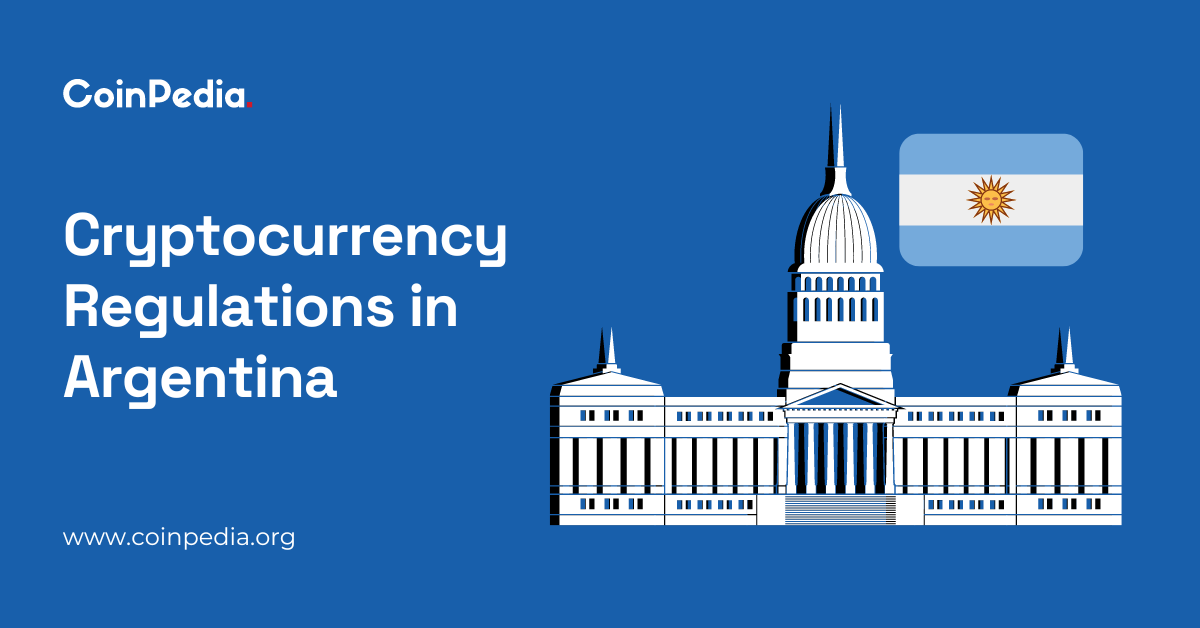
In Argentina, cryptocurrency is treated as a form of digital asset, allowing trading, storage, and usage without major restrictions. To ensure the safe and secure use of crypto, the Argentine federal government has implemented important regulations governing its use, including a VASP license, registration, and strict compliance with AMK and CFT.
In 2025, Argentina is actively implementing a regulatory framework for crypto to enhance oversight and align with global standards.
Major Crypto Regulations in Argentina 2025
June 13, 2025 – SEC Issued General Resolution No. 1069/2025
- It introduces the first regulatory framework applicable to the tokenization of real-world assets. It established a regulatory framework for the tokenization of marketable securities through their digital representation using distributed ledger technologies (DLT).
- The objective is to modernize the Argentine capital market by integrating blockchain technology.
April 14, 2025 – Cepo Cambiario
- The Argentine government lifted most currency controls, also known as “cepo cambiario”, allowing individuals to buy US dollars without restrictions.
- This deregulation extended to transactions involving cryptocurrency, expanding liberalization of foreign exchange.
March 14, 2025- Resolution 1058/2025
- The rule was issued by the National Securities Commission (CNV) to establish a mandatory registration system for virtual asset service providers (VASPs).
- It also seeks to align Argentina with global anti-money laundering (AML) and counter-terrorist financing (CFT) standards recommended by the Financial Action Task Force (FATF).
- The full regulatory framework will take effect on December 31, 2025. The deadline for registration of entities is as follows: Individuals– before July 1, 2025; Legal bodies in Argentina– before August 1, 2025; Foreign legal entities– before September 1, 2025.
Timeline of crypto regulations:
| Date | Law/ Regulations | Details |
| July 18, 2024 | Decree 640/2024 | Legal framework for the tokenization of goods |
| March 25, 2024 | CNV resolution 994/2024 | Mandatory VASP registration with CNV |
| March 25, 2024 | UIF Resolution 49/2024 | VASPs as UIF reporting entities, AML/CFT obligations |
| March 14, 2024 | Law 27,739 | VASP registration, AML/CFT, phased compliance deadline |
| December 20, 2023 | Decree 70/2023 | Legal validity of crypto contracts reaffirmed |
| May 4, 2023 | Central bank ban | Banks decline to offer crypto services |
What is the Argentine Government Saying About Crypto?
In 2025, the Argentine government took a progressive stance towards cryptocurrency, recognizing it as a digital asset. President Javier Milei’s administration has fostered this environment by initiating new legislation to encourage the growth of the cryptocurrency sector. The government’s key focus is:
- Allowing regulated use in transactions and contracts of crypto
- Ensure security and consumer protection within the crypto market
- Promotion of crypto adoption and investment in digital assets as part of the broader economy.
Crypto Tax in Argentina 2025
Important note: Crypto is an intangible property, so holding crypto is not taxed, but profits or income from transactions are taxable, aligning with fiscal modernization efforts.
Tax reporting: The Financial year runs from January 1 to December 31, and tax returns are due by June 30 of the following year. Crypto tax can be reported through AFIP’s online tax portal.
| Tax type | Tax rate | Tax applicability |
| Capital gains tax (CGT) | 15% | Profits from selling/ exchanging crypto |
| Income tax | 5% to 35% | Earnings from mining, staking, and payments |
| Personal property tax | 0.25%- 1.25% | Year-end value of crypto holdings |
| VAT | 21% | Crypto is used to buy goods and services |
| International transfers | 5% -15% | Cross-border crypto transactions. |
Second Largest Market in LATAM
Argentina moved $93.9 billion in crypto transaction volume between 2024 to June 2025. It ranked second in the largest Latin American (LATAM) crypto market, following Brazil. It had the highest purchasing volume in January 2025.
The Argentine Pesco ranked in the top third in stablecoin share exchange, indicating the country’s strong confidence in the asset.
Crypto License in Argentina
- There are no specific licenses in Argentina for crypto businesses; only the Virtual Asset Service Provider (VASP) registration is required to operate. The Resolution General 994/2024 defined the VASP, while Ley 277739 specified the regulatory (CNV) and functions of VASPs.
- All crypto companies must register if their transaction volume exceeds 35,000 UVA (approx $29,246). Exemptions for monthly volume below this threshold are also available.
- Penalty: Failure to register can result in the disqualification of the crypto platform and cease it from operating.
Under Ley 27739, the VASP can engage in:
- Exchange of virtual assets for fiat currencies.
- Exchange of one virtual asset for another.
- Transfer of virtual assets.
- Custody and management of virtual assets.
- Financial services related to virtual assets offerings and sales.
Crypto Adoption In Argentina
- User penetration rate: The crypto user penetration is expected to be 22.80% in 2025 and is projected to increase to 23.80% by 2026. The number of users in the crypto market is expected to reach 10.95 million by next year.
- Crypto revenue: The current projected crypto revenue is estimated to reach US$940.9 million in 2025. As the crypto market is growing rapidly in the region, the estimation for 2026 is growing at a rate of 16.02%, depicting US$1.1 billion crypto revenue by 2026.
- Crypto holdings: The Argentine government has not disclosed its crypto holdings yet; policies are prioritizing creating a framework for crypto regulations to protect investors and consumers.
Conclusion
Argentina’s recent policies and the government’s active efforts in the crypto space have promised further exploration of blockchain tokenization and open finance. The country is fully supporting high fintech adoption to balance security with modernization. The primary goal of the government is to establish a better digital framework to boost the economy with cryptocurrency and other digital assets.
Never Miss a Beat in the Crypto World!
Stay ahead with breaking news, expert analysis, and real-time updates on the latest trends in Bitcoin, altcoins, DeFi, NFTs, and more.
FAQs
Yes, crypto is legal but not considered legal tender. It’s regulated for taxation and anti-money laundering purposes.
Crypto gains are taxed up to 15% for individuals and 25–30% for legal entities based on residency and income source.
Yes, crypto mining is legal and popular due to Argentina’s low-cost, subsidized electricity.
No, Argentina’s central bank banned unregulated crypto services in traditional banks in May 2022.
Trust with CoinPedia:
CoinPedia has been delivering accurate and timely cryptocurrency and blockchain updates since 2017. All content is created by our expert panel of analysts and journalists, following strict Editorial Guidelines based on E-E-A-T (Experience, Expertise, Authoritativeness, Trustworthiness). Every article is fact-checked against reputable sources to ensure accuracy, transparency, and reliability. Our review policy guarantees unbiased evaluations when recommending exchanges, platforms, or tools. We strive to provide timely updates about everything crypto & blockchain, right from startups to industry majors.
Investment Disclaimer:
All opinions and insights shared represent the author's own views on current market conditions. Please do your own research before making investment decisions. Neither the writer nor the publication assumes responsibility for your financial choices.
Sponsored and Advertisements:
Sponsored content and affiliate links may appear on our site. Advertisements are marked clearly, and our editorial content remains entirely independent from our ad partners.








